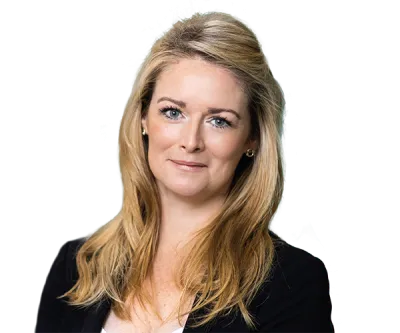A practical guide to setting up a family office in Jersey
Around the world family offices are growing in number. Family offices are increasingly becoming the organisation of choice for very wealthy families because they can be tailored to meet the individual needs of the families establishing them.
What is a family office?
Generally speaking, a family office is an organisation established to hold and manage the wealth of a single family or a small number of families. However, in the same way that every family is different, every family office is different. Family offices are highly bespoke structures devised individually according to the particular needs and wishes of the family or families they serve.
Functions of a family office
Family offices can have an almost unlimited range of functions, depending on what the families establishing them would like them to do. The principal function of a family office is to hold and manage a family’s wealth for present and future generations. However, family offices also often assist with the family’s legal and tax affairs generally, day to day life management tasks (such as managing household staff and making personal travel arrangements, often referred to ‘concierge’ services), the financial education of family members and the co-ordination and management of the family’s philanthropic efforts.
The structure
In this briefing we focus on single family offices rather than multi-family family offices. As above, the number of different ways a family office can be structured is infinite. However, as a general rule, most family office structures comprise of three, if not four, key parts.
The holding structure
First, there will be a structure established to hold the family’s wealth. Typically the structure will involve trusts, foundations and companies. However, it can include any type of entity or legal structure. Investment vehicles such as limited partnerships, limited liability partnerships and unit trusts are also commonly used.
The structure of a family office will be organised according to its purpose, the type and location of the assets it holds, any relevant tax considerations and the wishes and cultural values of the family involved. By way of example, a family office can be structured so that different types of assets or investments are held in different parts of the structure. The structure can also be devised so that different parts of the structure are held for the benefit of different branches of the family. Family offices can also be constructed so that different tax treatment can be preserved for different assets or family members or to allow different investment strategies to be adopted for different assets.
Where trusts are involved, families with a family office will often use private trust companies (PTCs) to act as trustees of the trusts that hold the family’s wealth. PTCs are companies incorporated for the sole purpose of acting as trustee of trusts established for a private family. In most cases Jersey PTCs are exempt from direct regulation by the Jersey Financial Services Commission as trust company businesses because they are not providing services to the general public. However, they are required to be administered by a regulated trust company business (TCB) in Jersey.
As well as having a low regulatory burden, PTCs have a further additional benefit in that they allow family members, or persons nominated by them, to sit on the board of the PTC and therefore have direct involvement in the administration and management of family assets if they wish.
In terms of location, whilst a family office might be based in Jersey, the holding structure of a family office will often span across multiple jurisdictions in order to accommodate the needs of families who typically have global footprints.
The operational structure
Secondly, there will be the operational part of the structure which runs the family office. Jersey family offices can either be hosted by a regulated TCB or establish their own presence in the Island. If the former, then the TCB’s staff will administer the structure and the family office will not need its own employees or premises.
However, many family offices opt to establish their own presence in Jersey and engage their own employees (or relocate key persons to the island) and lease their own premises. Such employees and premises can be employed and leased by one or more operational companies or entities which can be established. Such operational entities can also employ other staff for the family or families, for example, housekeepers, personal assistants, gardeners, etc. The operational entities are held within an operational part of the family office structure which is usually kept separate from the wealth holding part of the structure. As with the holding structure, although the operation of the family office might be headquartered in Jersey, a presence may be established in other key jurisdictions depending on the residencies of family members and the activities of the family office.
As part of the team of employees working for a family office, some family offices have in-house professional advisers, such as lawyers, accountants, property managers, investment advisers and tax advisers. In other family offices, the family office employs generalist in-house professionals whose job it is to retain, instruct and manage a panel of external specialist professional advisers. The number of employees and their expertise will vary considerably depending on the value, type and complexity of the assets under management.
Philanthropy
Thirdly, a family office arrangement often includes structures which are specifically designated for charitable or philanthropic purposes. Foundations or purpose trusts are particularly suited for this as they allow assets to be held for purposes rather than named beneficiaries. In many cases, the assets dedicated to charitable or philanthropic purposes are substantial. Depending on the size of the family office and the value of the assets designated for these purposes, this part of a family office structure can be significant and run by a dedicated in-house philanthropy professional or team. Alternatively, this role may be outsourced.
Investment platform
Fourthly, some family offices have an in-house investment capability meaning that the family office has its own private investment vehicle. Through this investment platform the family office can make its own investments directly rather than placing assets with external investment managers to be invested. In these cases, investment decisions will be taken by an in-house investment committee. Where a family office has this capability it will usually employ its own investment managers. However, if desired family members can be part of such an investment committee. This sort of investment vehicle would normally be regulated as a ‘fund’ for investor protection. However, in Jersey in the case of a single family office, because the family office’s investment vehicle will be privately owned and there are no external investors, the need for regulation falls away.
The benefits of a family office
Family offices provide a family with a number of benefits. First and foremost is the ability for the family office structure to be tailored to meet a family’s particular needs and wishes. Family offices are highly bespoke structures and are carefully constructed and maintained to take into account factors such as the degree of control a family wishes to have over its wealth, any taxation and succession issues, family dynamics and any risk issues (such as the physical security of family members, data security etc.).
Family offices also provide a family with a high degree of privacy. They are administered by a small number of employees who have most likely been hand-picked by the family themselves.
Family offices can also give family members the opportunity to be more involved in their structures than they would otherwise be able to be. Members of the family can be directors of private trust companies, council members of foundations and can even be employed by the operational companies. This enables family members to take an active part in the administration of their assets if they wish.
Families can instil a strong sense of their personal family values into a family office. Many families establishing family offices establish bodies such as family councils. These bodies usually comprise of certain key family members (such as the oldest generation, for example) and perhaps trusted professional advisers. They are often headed by the most senior family member, such as the generator of the family wealth, or the matriarch or patriarch. The employees of the family office can then liaise with the family council for guidance in administering the family’s assets. Families also frequently draft documents such as family constitutions or charters which are provided to the family office. Charters or constitutions can contain anything a family wishes but usually set out the mechanics of the family office, the family’s ethos or core values and the wishes of the family in respect of the family office structure. For example, whether the structure is intended to be dynastic, how the family wishes for wealth to be distributed, what the family wishes are in respect of particular assets, such as a family business, what the family’s wishes are in respect of philanthropy and how the family wishes assets to devolve over generations. Various other steps can also be taken to promote particular family or cultural values within the structure if desired.
Families establishing family offices are able to retain a high degree of control over the structures if they wish. For example, the constitutional documents of the operational companies and private trust companies can be drafted in order to provide family members with powers in relation to certain key decisions. The trust or foundation documents can also bestow certain powers on certain family members or persons nominated by them. Families setting up family offices are able to select and make changes to the personnel who administer the structure with ease.
In addition, family office personnel are likely to be able to be more aware of and responsive to family needs and to take decisions more swiftly because the family are their only clients.
Next steps
If you are interested to hear more about setting up a family office, please contact us. We would be delighted to discuss with you your particular requirements and advise you on various structuring options which might suit your needs. If you do then wish to go ahead, we can guide you through the process and co-ordinate all aspects of the establishment of your family office in Jersey. As well as the establishment of the legal structure we can also assist you with practical matters including those listed below.
Practical matters
Business licence
A family office wishing to establish a new business in Jersey will need to consider whether they will require a business licence in order to carry out its activities in the island and engage any staff. We can assist with this assessment and where a business license is required, we can make the necessary application on your behalf.
Employing staff
As part of the considerations for a business licence, you will need to consider whether specific permissions are required to employ individuals in the island. If there are individuals who will be employed by the family office who are not resident in Jersey, or have not resided in Jersey for five years or more, the family office will need to apply for permission to employ those employees. We can assist you with this process.
Jersey has its own employment and discrimination legislation which is different to those in the UK or EU. You will, therefore, need to ensure that the family office’s employment contracts, service agreements, staff handbooks and policies comply with Jersey law. We can provide you with all necessary Jersey law compliant employment documentation if you wish.
We can also advise you on any registrations that may need to be made in relation to social security, income tax, and as required under the Jersey data protection legislation.
Premises
There are a few different options available to family offices looking to acquire or lease commercial premises in the island. Jersey has its own property law which is substantially different to UK property law or property laws in other jurisdictions. The acquisition of property in Jersey or a long lease over property in Jersey requires a contract to be passed by the Royal Court of Jersey. We can advise you on and represent you in connection with all local property matters involved in the establishment of your family office. We can also put you in touch with other local professionals who can assist you with the search for and selection of suitable premises.
Relocation
If any family members wish to relocate to the island as part of the establishment of a family office in Jersey, a high value residency application will need to be made. This is also something we can help with. This is a process by which approval for residency is granted based upon how an individual will contribute to the island’s economy and the community, in particular their likely contributions to the island’s tax revenue, both personally and from the family office business, or any other business that they may wish to bring with them.
In addition, if key family office personnel are relocating to the island in order to run the family office, we can assist with the necessary applications for their employment and residency in the island.
Please do not hesitate to contact us if you have any queries or if you would like to discuss any aspect of this briefing further.




